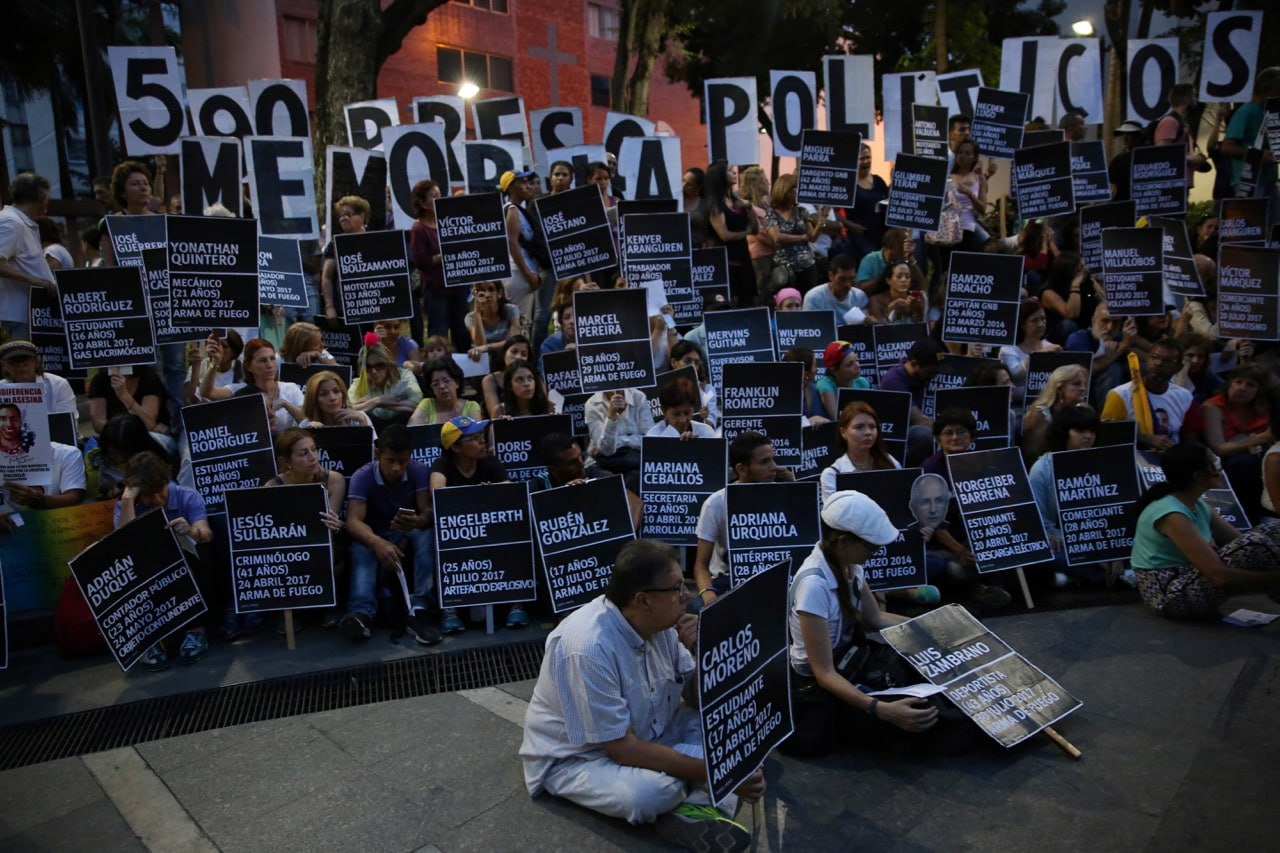A roundup of key free expression news in the Americas, based on IFEX member reports.
We enter the last quarter of 2017 with the continent shaken by attacks and obstacles to freedom of expression on all fronts.
Venezuela again grabbed all the headlines and, yet again, for all the wrong reasons. In early August the government of Nicolás Maduro installed a National Constituent Assembly whose election was marred by riots, leaving dozens dead and resulting in international condemnation of the government.
After generating what many considered to be a “self-inflicted coup”, the Venezuelan government, true to form, maintained its repressive media policies, complaining about election coverage despite the fact that it had 26 government media outlets at its disposal with which to convey its own message.
Journalists reported being attacked on several occasions in August. The torture of journalist and community leader Carlos Julio Rojas stands out. Rojas has been held in detention since 10 July in the Ramo Verde military prison in Miranda State, on charges of treason.
Closures of media outlets also continued. By the end of the month, the National Telecommunications Commission reached an accumulated total for 2017 of 41 commercial and community broadcasters shuttered, in addition to a public television station. The allocation of new licences is also used as a form of blackmail.
In the midst of this situation, United States President Donald Trump decided to intervene in the Venezuelan controversy, and not in the best way, threatening military intervention, which was soundly rejected by all.
Within this negative environment, a group of journalists won the IAPA News Coverage award for their detailed report on hunger in Venezuela.
The situation in Mexico has also failed to improve. August began with the assassination of Luciano Rivera, the eighth journalist killed in the country in 2017. At the beginning of the month, the Civil Society Organisations for the Protection of Rights Defenders and Journalists (Espacio OSC) presented their third analysis highlighting advances and setbacks in the implementation of policies for the protection of human rights defenders and journalists in Mexico.
Given the escalation in attacks and assassinations, as well as the discrediting of human rights defenders and journalists, the report noted that the main responsibility of the Mexican government is comprehensive protection for these individuals.
In fact, a report produced by our member ARTICLE 19 stated that in Mexico a journalist suffers some form of attack every 15.7 hours. During the first half of the year, 1.5 attacks were documented per day, with a total of 276 such actions, including six assassinations of journalists and one disappearance. These figures represent a 23% increase relative to the first half of 2016.
And August ended the same way it started, with another journalist dead. Cándido Ríos, a journalist for a regional daily in the state of Veracruz, was gunned down.
Colombia marked two decades of impunity in the case of journalist Nelson Carvajal, who was assassinated in 1998. On 22 and 23 August 2017, a hearing of Carvajal’s case took place before the Inter-American Court of Human Rights in Costa Rica.
Meanwhile, Ecuador confirmed an order for the pre-trial detention of journalist Fernando Villavicencio for the crime of disclosing confidential information. Villavicencio has refused the imposition of an electronic shackle.
Brazilian journalists had an interesting revelation: for more than 90% of Brazilian press personnel, journalism is considered crucial for democracy and societal advancement. Despite this, however, there is a significant gap between this mission and the practice of journalism.
In Bolivia, two incidents of note took place. Between 3 and 9 August, journalists from print media, television and radio stations were harassed, pressured and threatened by settlers at the entrance to the Isiboro Sécure Indigenous Territory and National Park, also known by its Spanish acronym, Tipnis. In addition, Agustín Aldo Mamani Mamani, a journalist for Radio del Valle in the municipality of Mecapaca, in the department of La Paz, was detained on 29 August.
In brief:
- The Chilean organisation Derechos Digitales issued its annual report for 2016, publishing more than 50 articles analysing digital rights and freedom of expression cases.
- In Colombia, the Karisma Foundation began a campaign to protect mobile phone data in response to a government initiative that, according to the organization, violates personal privacy rights.
- Canada continues to fall short of its obligation to inform citizens when its intelligence agency shares information with the United States or other close allies. Open Media has highlighted this serious omission and warned that this situation should be corrected.
- In a historic ruling, the Electronic Frontier Foundation, together with the American Civil Liberties Union, won a court decision in which they argued that licence plate data collected, classified and saved by the California police in the United States should be considered public information. The complainants see this as a significant victory for transparency in access to information in the state.
- On 30 August, the International Day of the Disappeared, the United Nations declared, “It is inadmissible that in 2017, enforced disappearances continue to happen” and warned that a generalised state of impunity exists throughout Latin America.
- In Argentina the craftsman and activist Santiago Maldonado is still missing and the lack of response from the authorities has prompted massive demonstrations demanding that he be found.
In this respect, the secretary general of the Organisation of American States sent out a call for protection of the right to life, and a demand for truth and justice via Twitter.
Hoy, en Día Intl contra #DesaparicionesForzadas hacemos llamado a proteger derecho a la vida, y el justo reclamo de verdad y justicia pic.twitter.com/kPBKhFWPaP
— Luis Almagro (@Almagro_OEA2015) August 30, 2017
